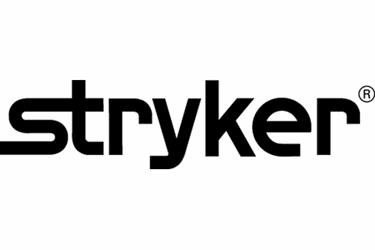Stryker To Pay $80M To Resolve OtisMed Investigation
By Jof Enriquez,
Follow me on Twitter @jofenriq

Stryker Corp. recently announced an $80 million settlement of a case involving the unauthorized marketing and sale of cutting guides used for total knee arthroplasty (TKA) procedures. The devices were made by OtisMed, a formerly privately held firm acquired by Stryker in November 2009.
A short statement from the company said that “Stryker and OtisMed will pay $79,560,400 plus interest” to resolve civil and criminal liabilities involving OtisMed’s illegal actions prior to being acquired by Stryker, according to Nasdaq.com. The company said that the Department of Justice (DOJ) acknowledged that OtisMed's criminal conduct “occurred prior to Stryker's acquisition of OtisMed and without Stryker's prior knowledge or acquiescence.”
U.S. District Judge Claire C. Cecchi ordered OtisMed to pay $34.4 million and an additional $5.16 million in criminal forfeiture, according to a press release issued by the Justice Department. Separately, the company agreed to settle its civil liability in the case for $40 million plus interest. The court banned OtisMed from participating in all federal healthcare programs for 20 years. In addition, Stryker agreed to comply with a series of measures to discourage similar misconduct.
The settlement is the result of a plea agreement made by prosecutors with OtisMed and its former CEO, Charlie Chi. According to the DOJ statement, Chi was charged with “distributing, with the intent to defraud and mislead, adulterated medical devices into interstate commerce in violation of the Food, Drug, and Cosmetic Act (FDCA).” In 2009, Chi ordered the shipment of OtisKnee cutting guides one week after the FDA denied marketing approval for the devices. The company also belatedly filed its submission in October 2008, after it had been selling the devices to orthopedic surgeons since May 2006.
“It is vital that products like the OtisKnee are subjected to the appropriate level of scrutiny,” U.S. Attorney Paul J. Fishman for the District of New Jersey said in the DOJ statement. “Patients seeking medical care are vulnerable; they are often afraid, and in pain. They should be able to trust their doctors. And they should be entitled to trust that the devices their doctors are using are safe, effective, tested and approved. OtisMed and Charlie Chi betrayed that trust.”
According to court filings recounted in the statement, OtisMed sold more than 18,000 OtisKnee devices, which generated revenue of approximately $27.1 million for the company between May 2006 and September 2009. It had not secured any FDA approval to market the device during that entire period.
“Companies and individuals put the public health at risk by not complying with FDA regulatory requirements for the pre-market review of medical devices,” Philip J. Walsky, acting director of the FDA’s Office of Criminal Investigations, said in a statement issued by the FDA. “We will continue to investigate and bring to justice those who potentially endanger patient safety by distributing unapproved medical devices.”
The OtisMed case is the latest legal issue resolved by Stryker. In November, the company agreed to settle more than 4,000 suits over defective all-metal hip implants for approximately $1.43 billion.
